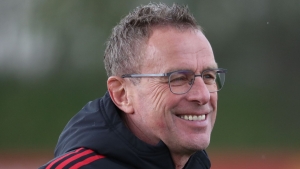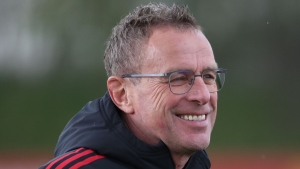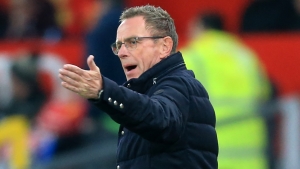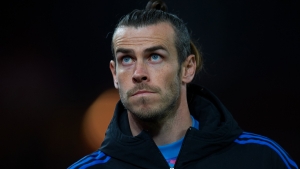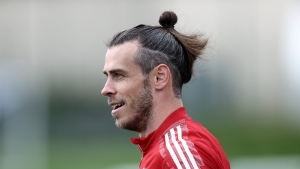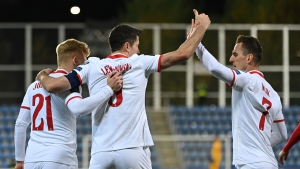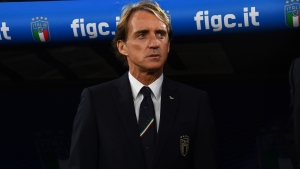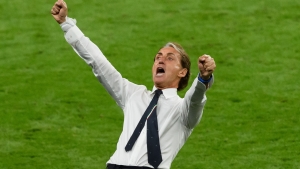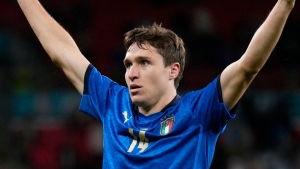The qualification campaign for the 2022 World Cup is all but over.
Some key matches still have to be played, with Wales yet to find out their fate as they wait to face the winner of Scotland's play-off with Ukraine, which has been postponed due to Russia's invasion of the country, while there are inter-confederation play-offs also to be decided.
In total, 28 nations have qualified already, and most of football's star names will be present.
That being said, while France's world champions will bid to defend their crown, Neymar will bring the Brazilian stardust, Lionel Messi will look to build on Argentina's Copa America triumph and Cristiano Ronaldo will feature at a record-equalling fifth tournament, some huge players - and indeed teams, in the case of Italy - will not be present in Qatar.
Stats Perform has looked at some of the star players who will be watching the tournament from home.
Mohamed Salah (Egypt)
Arguably the best player in the world this season, Salah will not be lighting up Qatar with any mazy runs or sensational strikes. Given the tournament is in the middle of next season, Liverpool boss Jurgen Klopp may secretly be pleased his talisman will not be risking injury or fatigue, but Salah – who blazed his penalty over in the decisive shoot-out against Senegal on Tuesday – will be a big miss.
James Rodriguez (Colombia)
A star of the 2014 World Cup, in which he won the golden boot, James Rodriguez scored Colombia's winner against Venezuela on Tuesday, yet Peru's victory over Paraguay meant the ex-Real Madrid playmaker and his team-mates will not appear in Qatar, where James currently plies his trade for Al-Rayyan.
Luis Diaz, who has made a flying start to life at Liverpool since joining from Porto in January, is another Colombian talent who will be watching on from the sidelines.
Gianluigi Donnarumma (Italy)
The hero of Italy's Euro 2020 triumph with his saves in the penalty shoot-out victory over England last July, Donnarumma – one of Europe's best goalkeepers – will be watching on from afar along with the rest of Roberto Mancini's players. After his error in Paris Saint-Germain's capitulation against Madrid in the Champions League, March has been a sour month for the 23-year-old.
Georgio Chiellini (Italy)
While Donnarumma has time on his side to make it to the next World Cup, the same cannot be said for Giorgio Chiellini. The centre-back is 37 and will surely not be featuring at another major tournament for Italy now.
Defensive partner Leonardo Bonucci may also fall into that category, given he turns 35 in May, while 29-year-old playmaker Marco Verratti may also have seen his final chance of appearing at the World Cup for a second time dashed.
Zlatan Ibrahimovic (Sweden)
It was the battle of two of Europe's leading marksmen of the last decade on Tuesday, as Poland went head-to-head with Sweden, and it was Robert Lewandowski and Co. who came out on top, winning 2-0.
Bayern Munich star Lewandowski opened the scoring from the penalty spot, and though Ibrahimovic came on as a late substitute, he could not turn the tide in Sweden's favour. The Milan striker has suggested he wants to carry on playing for his country, but at 40, surely this was his last chance of appearing at a World Cup.
Erling Haaland (Norway)
Although Ibrahimovic may be approaching the tail-end of his career, Haaland is certainly not. Yet like the Swede, the Borussia Dortmund forward will not be playing in Qatar either.
Indeed, even if Norway had made it through their qualification group, it is uncertain as to whether or not the players would have chosen to boycott the tournament, having previously made their feelings on Qatar's human rights record clear. But they finished third in Group G anyway.
Arsenal playmaker Martin Odegaard is another bright Norweigian talent, though the Scandinavian nation may well fancy their chances heading towards Euro 2024 and the 2026 World Cup.
David Alaba (Austria)
Madrid defender Alaba could not inspire Austria to victory in their play-off clash with Wales, with Gareth Bale's double doing the damage. After a glittering career with Bayern, Alaba is on course to win LaLiga with Los Blancos, but any form of real, tangible success on the international stage looks set to avoid him.
Jan Oblak (Slovenia)
Oblak's form has dipped this season for Atletico Madrid but on his day he is still right up there among the world's best goalkeepers, though he could not help Slovenia finish higher than fourth in their qualification group, as their wait to qualify for a first World Cup since 2010 rolled on.





















